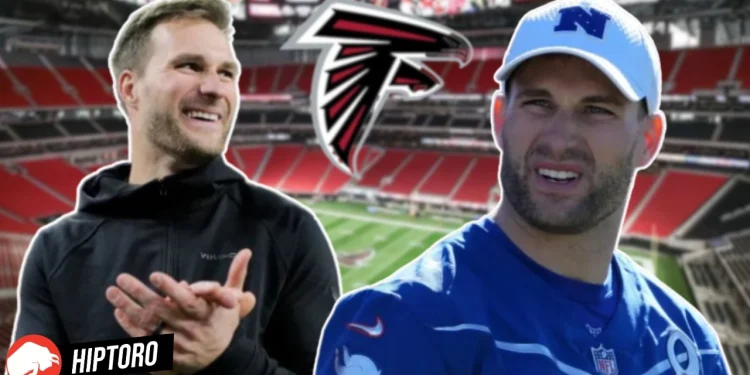At the heart of the latest drama is Kirk Cousins, a name now synonymous with the whispers of tampering that have enveloped the Atlanta Falcons in a cloud of controversy.
In the grand theater of NFL free agency, a narrative as old as the league itself unfolds anew, casting shadows of intrigue and speculation across the passionate fan base. The saga, rich with implications for the NFL’s fiercely competitive landscape, offers a fascinating glimpse into the delicate dance of player acquisition and the ever-evolving dynamics of league rules.

The Intriguing Case of Kirk Cousins and the Falcons
Kirk Cousins, formerly of the Minnesota Vikings, has found himself at the center of an unfolding narrative that may well redefine the boundaries of team-player negotiations in the NFL. The Atlanta Falcons, accused of tampering to secure Cousins’ allegiance, stand at a precipice, their actions under the league’s microscope.
2017: "I want to retire a R*****n."
2022: "I want to retire a Viking."
2024: "I want to retire a Falcon."🧐🧐🧐#Vikings #Falcons #KirkCousins pic.twitter.com/Ki77R6rexf
— Skol Rant (@SkolRant) March 14, 2024
This story is not just about a player’s move but a test of the NFL’s regulatory framework, designed to ensure fair play in the free agency frenzy.
The Legal Tampering Period: A Legal Loophole?
The NFL’s legal tampering period, a two-day window before the official start of free agency, is meant to level the playing field. It allows teams to negotiate with the agents of soon-to-be free agents, setting the stage for a flurry of signings once the market officially opens.

However, the distinction between talking to agents and directly to players during this period remains a contentious issue. Critics argue that the rules are more form than substance, a ceremonial nod to fairness that fails to address the underlying competitiveness that drives teams to bend, if not break, the guidelines.
The Consequences of Crossing the Line for Kirk Cousins
Should the Falcons be found guilty of tampering, the repercussions are unlikely to be as severe as some might anticipate. The loss of a draft pick, potentially from the later rounds, seems to be the most plausible outcome, along with a monetary fine.
Such penalties, while punitive, hardly dent the ambitions of teams like Atlanta, which view the acquisition of a player like Cousins as a transformative move that can alter the course of their season.

The Bigger Picture for Kirk Cousins: Competitive Balance and the Spirit of Free Agency
At its core, the Kirk Cousins saga is a reflection of the NFL’s ongoing struggle to balance competitive fairness with the realities of a free market. The legal tampering period, despite its controversies, represents an attempt to give all teams a fair shot at improving their rosters. However, as the lines between permissible and impermissible contact blur, the effectiveness of these regulations comes into question.
The NFL’s challenge is to adapt its policies to reflect the nuances of modern free agency, ensuring that the spirit of competition remains the cornerstone of the league. As the Cousins case unfolds, it serves as a reminder of the fine line between strategic maneuvering and outright rule-breaking—a line that the NFL must navigate with care to maintain the integrity of the sport.
In the drama of NFL free agency, the narrative is ever-changing, with heroes and villains often interchangeable. The Kirk Cousins episode, with all its complexities and controversies, adds yet another chapter to the league’s storied history, reminding fans and franchises alike that the game is always evolving, both on the field and off.

Source: Fansided









